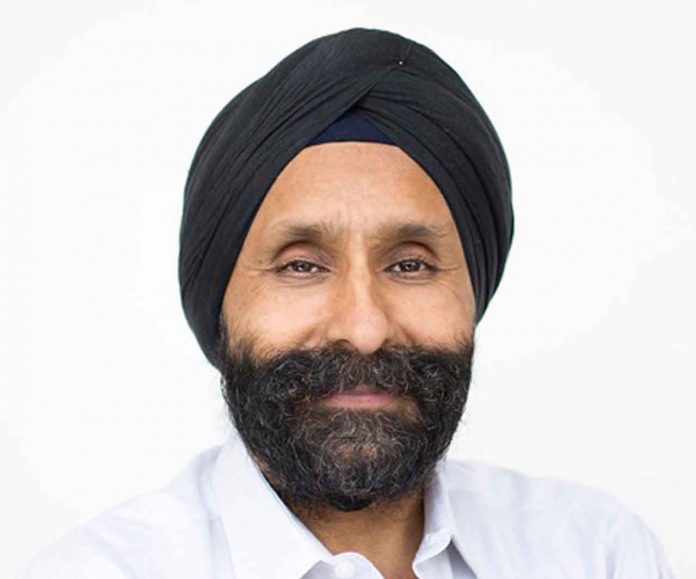Bhavdeep Singh is a Managing Partner at Whitehawk Associates LLC, an independent business management consultancy specializing in Retail, Human Resources, Leadership Development, and Healthcare. He is also the former Chairman and co-founder of HealthQuarters, a new destination for curated and clinically-backed health and wellness services in in one location.
Over his 30+ year career, Bhavdeep Singh experienced many great successes leading several multi-billion-dollar companies which saw tremendous growth under his watchful eye. In 2021, Singh transitioned from “employee” to entrepreneur with the creation of Whitehawk Associates, an advisory/consulting firm with clients in the healthcare, retail, and supply chain industries.
Before joining Whitehawk Associates and launching Healthquarters, Bhavdeep Singh gained a very strong reputation as a forward-thinking business leader serving as Head of US Operations for Ahold, a $26 billion business, where he had complete P&L oversight for 800 stores and 110,000 employees. Post that, he was the Chief Executive Officer of Fortis Healthcare, where he led one of the largest private health systems in the world and helped manage a network of more than 30 private hospitals across India.
Apart from his professional career, Bhavdeep is a practicing Sikh. As many might know, Sikhism is the fifth largest religion in the world.
We had the opportunity to connect with Bhavdeep Singh who shared some thoughts about his personal experience as an immigrant to the United States and his personal history as a Sikh American, and the challenges and opportunities facing the Sikh community today.
How did you get your start in community involvement and service?
I grew up in a family of activists. My parents were quite outspoken and our topics of conversation routinely covered things like integrity, fairness, and rights, as well as standing up for others. So, as far back as I can remember, the Singh family has tackled topics that might have been uncomfortable for others. As a result, it was natural for me, my sister, and my brother to develop mindsets of involvement. We ran for class office, volunteered at our temple, and got actively engaged with anything else that made sense to us.
What unique perspective do you bring?
I do not know if my perspective is unique but I do know that it is mine and it is deeply rooted in my personal experiences as well as the path of others who inspired me on my journey. As a Sikh American, I have had the good fortune of coming to this great country and have been exposed to many great people and ideas that have collectively been a big piece of any success that I have had in life. At the same time, I have had some challenges as well – taunts and bullying as a child and outright discrimination as an adult. However, once you step back and look at the entire picture, it has been a great experience and I have been blessed with so much.
Can you share a personal story about discrimination and how the experience impacted you?
While I have had many many stories of discrimination, there are a handful that stand out. I remember one specific experience from 2001. It was September 12th, 2001 and as I did on most days, I went out for an early morning walk. At the time, I lived in a small subdivision that had about 30-40 houses. In any event, as I started to walk home, I was stopped by two police officers in a police car just 3-4 houses away from my home. One of the officers asked in a bit of a curt manner if I had any identification with me. I responded by saying that this was my neighborhood and I lived down the street.
The officer asked again if I had identification – this time, I responded a bit curtly as well, “Do I need it?” This was my neighborhood and I was out for a walk at 5 am, why would I need identification with me? The situation eventually did get resolved but only after a short and very cold exchange. So, after having been in the states most of my life, my allegiance and loyalty to my country were being questioned because I wore a turban on my head!
What are some of the biggest misconceptions most people have about Sikhs?
The social and cultural negative connotation attached to having a turban and beard, along with the modern history of violence associated with them has skewed the logic for the less informed to believe that somehow having a beard and turban makes one dangerous. So much so that systemic profiling has allowed it to be a strong indicator of something explosive about to happen.
As Sikhs, we look different, but we take pride in our appearance and while we integrate into the society, we do not necessarily want to blend in when it comes to our appearance and fundamental value system. On the topic of experience, I often remind my American friends that when it comes to physical appearance, Sikhs look like the founders of most faiths in the world.
What are some of the most important priorities for the Sikh community today?
As a community, Sikhs are focused on educating other members of our society so we can remove any ignorance and/or inherent biases that might be out there. And while there is a huge initiative to do just that, we have a long way to go. With that said, while we continue to educate those around us, we are also involved in our local communities and it is very important that we contribute to the well being of all that are around us. In fact, it is worth noting that during the recent Covid pandemic, most Sikh temples were actively and voluntarily feeding hundreds and thousands of homeless people every day around these United States.
So, things are moving, but the journey has just started and we have a long way to go.

